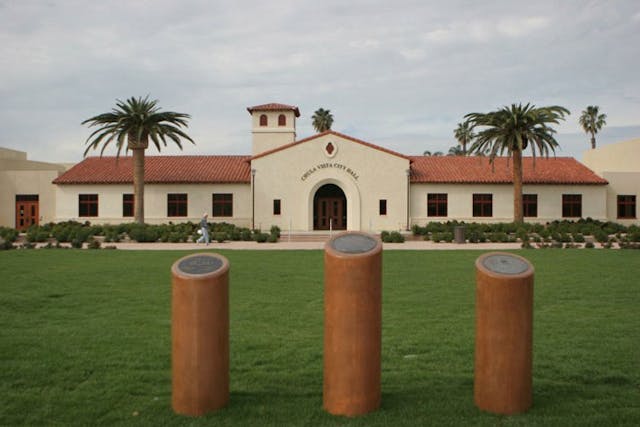Cross-Border Battery Pollution Investigated
Frontera NorteSur
Across the Rio Grande and over numerous desert land crossings, the golden scraps of U.S. throwaway society head south. Used clothes, appliances, cars and other commodities are shipped to the huge, second-hand Mexican market where low wages guarantee steady sales. And during the last five years or so, a new market has opened up for used lead-acid batteries.
Now an international environmental agency headquartered in Canada is investigating the business amid reports from citizen advocacy groups and the media that have raised red flags.
In a landmark 2011 report, the U.S.-based group Occupational Knowledge International and its Mexican partner Fronteras Comunes (Common Borders) explored the ecological and public health risks of lead-acid batteries sent from the U.S. to Mexico, where at least 21 plants extract lead for recycling purposes.
Becoming scarcer in its natural state, lead is in great demand for auto batteries, cell-phone networks and- ironically- even solar energy technologies. According to the Occupational Knowledge International /Fronteras Comunes report, U.S. exports of lead-acid batteries to Mexico shot up from practically nothing in 2006 to 237,389 tons in 2010. An estimated 20 million lead-acid batteries enter Mexico every year. Exports surged after the U.S. Environmental Protection Agency toughened air quality standards for airbone lead in 2008.
In their study, the two green groups raised serious issues about the adequacy of Mexican environmental standards and legal oversight of a toxic substance linked to serious developmental problems in children. Concern over the environmental and human health costs of lead-acid battery recycling has now extended to the environmental side commission established under the North American Free Trade Agreement (NAFTA).
The Montreal-based North American Commission for Environmental Cooperation (CEC) announced this month that it was beginning a probe of the used lead-acid battery trade in the three NAFTA member nations.
In a statement, the CEC Secretariat warned of the dangers conncected to lead pollution. “Even in small doses, exposure to lead dust and vapors in lead-contaminated air, water, or soil has been associated with nervous system impairment in fetuses and young children, resulting in learning deficits and lowered IQ,” the CEC Secretariat said.
The CEC’s decision to compile documentation on the burgeoning lead-acid battery trade followed recent stories in the U.S. and Mexican media which were triggered by the Occupational Knowledge International/Fronteras Comunes report.
The report noted irregularities such as lax emissions reporting by some licensed extraction plants, and pointed out that Mexican limits for ambient concentrations of lead are 10 times higher than in the U.S. Additionally, the Mexican workplace exposure standard for lead exposure is three times greater than the U.S. limit, the study stressed.
Citing a New York Times piece, the Mexican news agency Notimex reported that the patio of an elementary school near the Industrial Mondelo plant in the state of Mexico registered lead levels of 2,000 parts per million, an accumulation five times greater than the allowed level in the U.S. According to Notimex, unnamed Mexican environmental officials voiced concern about the lead pollution reports but argued that they lacked the resources, personnel and technical capacity to monitor a new industry spread across the country.
The CEC said it expected to complete the lead-acid battery investigation this year, and encouraged any “interested persons and organizations” to contact the Secretariat in order to provide relevant information or be included in an upcoming consultation process.
The findings will then be forwarded to the CEC Council, which is made up of cabinet-level environmental authorities from Canada, the U.S. and Mexico. The CEC said its (non-binding) recommendations will focus on improving lead-acid battery management, especially as it relates to “vulnerable populations” in Mexico.
Frontera NorteSur: on-line, U.S.-Mexico border news Center for Latin American and Border Studies New Mexico State University Las Cruces, New Mexico



 Arturo Castañares
Arturo Castañares


